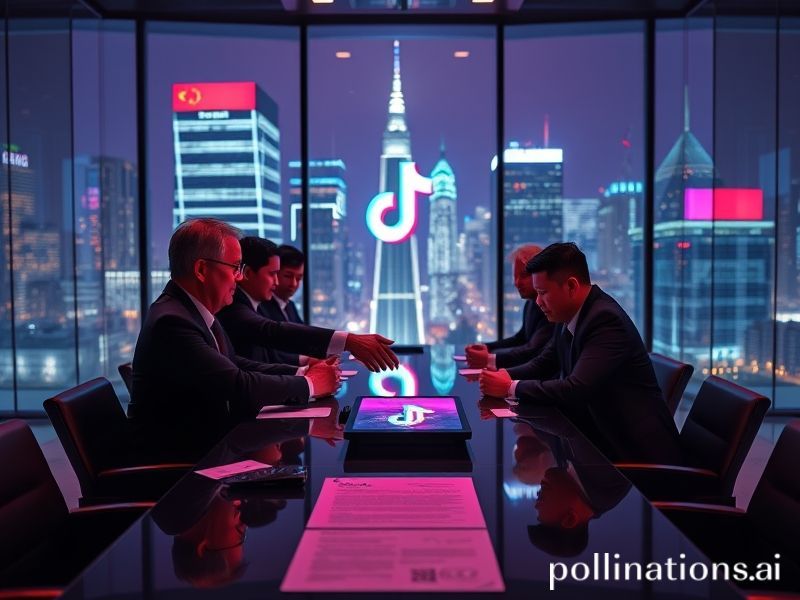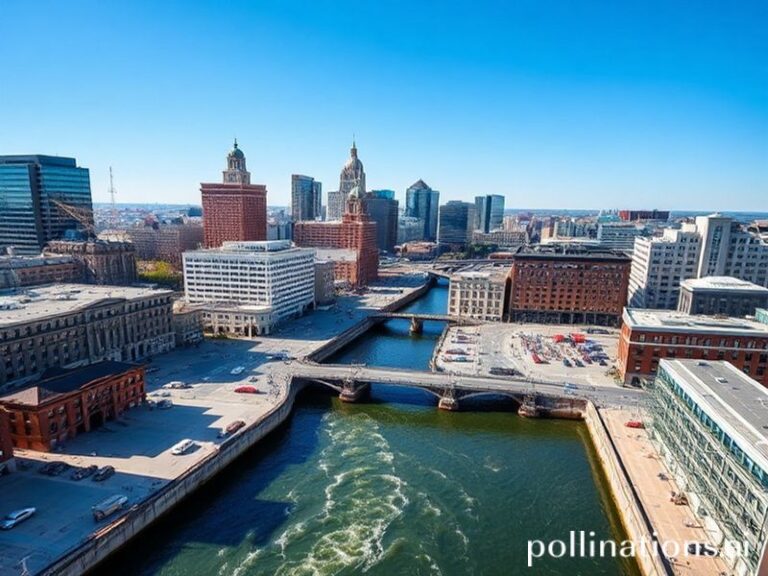Global Power Play: How TikTok Became the World’s Most Expensive Geopolitical Hostage
**The TikTok Deal: How a Dancing App Became the World’s Most Expensive Geopolitical Hot Potato**
If you’ve been wondering what fresh hell 2025 has in store for us, look no further than the ongoing TikTok saga—a corporate soap opera so convoluted it makes Brexit negotiations look like a straightforward business transaction. What began as an app for teenagers to film themselves lip-syncing has somehow become the poster child for digital sovereignty, with the irony being that nobody actually knows who owns what anymore.
The latest chapter in this techno-thriller sees the Biden administration demanding ByteDance sell TikTok’s U.S. operations or face a nationwide ban, a move that’s about as subtle as a sledgehammer at a tea party. The deadline looms like a final exam everyone forgot to study for, while potential buyers—from Microsoft to Walmart to Oracle—circle like vultures wearing business casual.
But here’s where it gets deliciously absurd: this isn’t just about American data privacy concerns (though that’s the official line). It’s about the global realignment of digital power in an era where your smartphone knows more about you than your therapist. Countries worldwide are watching this melodrama unfold with the kind of morbid fascination usually reserved for reality TV shows about people who marry their cousins.
The European Union, never one to miss an opportunity for regulatory overreach, has implemented its own digital sovereignty measures while pretending they’re not doing exactly what the Americans are doing. Meanwhile, India—showing the kind of decisive leadership that makes democracies look positively sluggish—simply banned TikTok and 58 other Chinese apps in 2020, proving that sometimes the most straightforward solution is just to pull the plug.
What makes this particularly entertaining is watching nations wrestle with the fundamental contradiction of the modern internet: everyone wants the benefits of global connectivity without any of the messy interdependence. It’s like wanting to have your cake, eat it too, and somehow ensure the cake wasn’t baked in a country you don’t trust.
The economic implications are staggering. TikTok’s valuation dances somewhere between $50-100 billion—a range so wide you could drive a truck through it, which is fitting for a deal being negotiated with all the precision of a drunken auction. For context, that’s roughly the GDP of Ecuador, except Ecuador produces bananas and oil, while TikTok produces teenagers who can simultaneously dance and point at text.
From Beijing to Brussels to Brasília, governments are scrambling to establish their own digital fortresses, each convinced that data sovereignty is the new nuclear deterrence. China has its Great Firewall, Europe has GDPR, and America has… well, apparently has whatever TikTok deal emerges from this mess. It’s cybersecurity through real estate: if you can’t beat them, buy them.
The broader significance hits like a late-night existential crisis: we’ve built a global economy on platforms that nobody actually controls, used by billions who don’t understand the terms of service they never read. We’re essentially conducting international relations through an app where people share videos of their cats playing pianos.
As the deadline approaches and deal negotiations continue their interpretive dance, one thing becomes crystal clear: the winner won’t be users, democracy, or even national security. It’ll be the lawyers, consultants, and investment bankers who’ve turned geopolitical paranoia into a growth industry. In the meantime, 170 million Americans continue scrolling, their data floating in a digital purgatory while governments argue over who gets to monetize their attention spans.
The TikTok deal isn’t just about one app—it’s about who gets to control the nervous system of the 21st century. And if that’s not terrifying enough, remember: whatever deal they strike today will probably seem quaintly naive by tomorrow’s standards. After all, in the digital age, even our dystopias have expiration dates.







